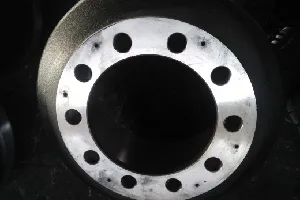
-
 Afrikaans
Afrikaans -
 Albanian
Albanian -
 Amharic
Amharic -
 Arabic
Arabic -
 Armenian
Armenian -
 Azerbaijani
Azerbaijani -
 Basque
Basque -
 Belarusian
Belarusian -
 Bengali
Bengali -
 Bosnian
Bosnian -
 Bulgarian
Bulgarian -
 Catalan
Catalan -
 Cebuano
Cebuano -
 Corsican
Corsican -
 Croatian
Croatian -
 Czech
Czech -
 Danish
Danish -
 Dutch
Dutch -
 Inglês
Inglês -
 Esperanto
Esperanto -
 Estonian
Estonian -
 Finnish
Finnish -
 French
French -
 Frisian
Frisian -
 Galician
Galician -
 Georgian
Georgian -
 German
German -
 Greek
Greek -
 Gujarati
Gujarati -
 Haitian Creole
Haitian Creole -
 hausa
hausa -
 hawaiian
hawaiian -
 Hebrew
Hebrew -
 Hindi
Hindi -
 Miao
Miao -
 Hungarian
Hungarian -
 Icelandic
Icelandic -
 igbo
igbo -
 Indonesian
Indonesian -
 irish
irish -
 Italian
Italian -
 Japanese
Japanese -
 Javanese
Javanese -
 Kannada
Kannada -
 kazakh
kazakh -
 Khmer
Khmer -
 Rwandese
Rwandese -
 Korean
Korean -
 Kurdish
Kurdish -
 Kyrgyz
Kyrgyz -
 Lao
Lao -
 Latin
Latin -
 Latvian
Latvian -
 Lithuanian
Lithuanian -
 Luxembourgish
Luxembourgish -
 Macedonian
Macedonian -
 Malgashi
Malgashi -
 Malay
Malay -
 Malayalam
Malayalam -
 Maltese
Maltese -
 Maori
Maori -
 Marathi
Marathi -
 Mongolian
Mongolian -
 Myanmar
Myanmar -
 Nepali
Nepali -
 Norwegian
Norwegian -
 Norwegian
Norwegian -
 Occitan
Occitan -
 Pashto
Pashto -
 Persian
Persian -
 Polish
Polish -
 Portuguese
Portuguese -
 Punjabi
Punjabi -
 Romanian
Romanian -
 Russian
Russian -
 Samoan
Samoan -
 Scottish Gaelic
Scottish Gaelic -
 Serbian
Serbian -
 Sesotho
Sesotho -
 Shona
Shona -
 Sindhi
Sindhi -
 Sinhala
Sinhala -
 Slovak
Slovak -
 Slovenian
Slovenian -
 Somali
Somali -
 Spanish
Spanish -
 Sundanese
Sundanese -
 Swahili
Swahili -
 Swedish
Swedish -
 Tagalog
Tagalog -
 Tajik
Tajik -
 Tamil
Tamil -
 Tatar
Tatar -
 Telugu
Telugu -
 Thai
Thai -
 Turkish
Turkish -
 Turkmen
Turkmen -
 Ukrainian
Ukrainian -
 Urdu
Urdu -
 Uighur
Uighur -
 Uzbek
Uzbek -
 Vietnamese
Vietnamese -
 Welsh
Welsh -
 Bantu
Bantu -
 Yiddish
Yiddish -
 Yoruba
Yoruba -
 Zulu
Zulu
Jan . 30, 2025 04:16
De volta à lista
do new brake drums need to be turned
Installing new brake drums is a critical step in car maintenance that impacts safety and performance. Many vehicle owners and mechanics wonder if these components need to be turned, or machined, before being put to use. This process can help ensure smoother operation, more even wear, and prolonged longevity of the braking system. However, understanding when and why this procedure is necessary can be complicated. In this article, we dive into the nuances of whether new brake drums really need to be turned.
Moreover, the cost-benefit analysis also plays a part. Turning new drums incurs additional labor charges and extends the preparation time for your vehicle’s maintenance. Therefore, unless you are dealing with a high-performance vehicle or have detected issues that specifically require machining, you are often better off trusting the manufacturing process and using the drums as they are. On a broader note, understanding the detailed specifications of your vehicle and its maintenance manual can provide definitive answers. Manufacturers often have specific guidelines concerning whether turning is necessary, based on their quality assurance processes and the materials used. This makes consulting the documentation provided with the new drums an essential step in the decision-making process. Ultimately, when it comes to safety-critical components such as brake drums, each vehicle and situation may require a different approach, heavily influenced by expert advice and condition assessment. From a professional standpoint, prioritizing the braking system's smooth operation and integrity should always be at the forefront of any decision. Conclusively, the question of turning new brake drums boils down to individual circumstances and professional insight, underscoring the importance of careful assessment and expert consultation. While generally unnecessary, turning can sometimes be beneficial or even essential, ensuring your vehicle’s safety and performance remains uncompromised. Always consulting with experienced mechanics and following manufacturer guidelines will lead you to the best decision for your vehicle’s specific needs.


Moreover, the cost-benefit analysis also plays a part. Turning new drums incurs additional labor charges and extends the preparation time for your vehicle’s maintenance. Therefore, unless you are dealing with a high-performance vehicle or have detected issues that specifically require machining, you are often better off trusting the manufacturing process and using the drums as they are. On a broader note, understanding the detailed specifications of your vehicle and its maintenance manual can provide definitive answers. Manufacturers often have specific guidelines concerning whether turning is necessary, based on their quality assurance processes and the materials used. This makes consulting the documentation provided with the new drums an essential step in the decision-making process. Ultimately, when it comes to safety-critical components such as brake drums, each vehicle and situation may require a different approach, heavily influenced by expert advice and condition assessment. From a professional standpoint, prioritizing the braking system's smooth operation and integrity should always be at the forefront of any decision. Conclusively, the question of turning new brake drums boils down to individual circumstances and professional insight, underscoring the importance of careful assessment and expert consultation. While generally unnecessary, turning can sometimes be beneficial or even essential, ensuring your vehicle’s safety and performance remains uncompromised. Always consulting with experienced mechanics and following manufacturer guidelines will lead you to the best decision for your vehicle’s specific needs.
Anterior:
Últimas notícias
-
What Are Drum BrakesNotíciasJul.07,2025
-
Understanding Brake Drum MaterialNotíciasJul.07,2025
-
Semi-Trailer Brake Drum: A Key Component for Extreme Loads and Long-Distance TransportNotíciasJul.07,2025
-
Drum Brake Pads for SaleNotíciasJul.07,2025
-
Brake Drums for SaleNotíciasJul.07,2025
-
Brake Drum ManufacturerNotíciasJul.07,2025
-
Aluminum Brake Drums: The Future of High-Performance CarsNotíciasJul.07,2025
